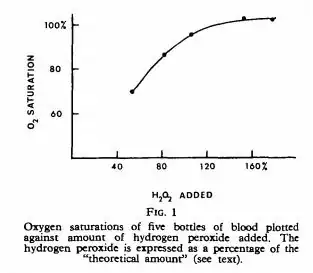I'm writing a story about scientifically plausible superhumans ( a new genetically enhanced human species that is mentally and physically superior to ordinary humans ), and one of their main features is the ability to hold your breath for a long enough time ( more than thirty minutes), but without lowering your metabolic rate.
At first glance, the most obvious solution to my problem would be to increase the volume of my superhumans ' lungs so that when they inhale, they can inhale more oxygen. But in this case, I need to improve the ability of their blood to carry oxygen. After all, blood circulation performs one of the most important functions of transferring oxygen from the lungs to the tissues, and carbon dioxide — from the tissues to the lungs. The oxygen consumption of tissue cells can vary significantly, for example, during the transition from a state of rest to physical activity and vice versa. In this regard, the blood must have large reserves necessary to increase its ability to carry oxygen from the lungs to the tissues, and carbon dioxide in the opposite direction.
Hemoglobin is able to capture oxygen from the alveolar air (a compound called oxyhemoglobin) and release the necessary amount of oxygen in the tissues. A feature of the chemical reaction of oxygen with hemoglobin is that the amount of bound oxygen is limited by the number of hemoglobin molecules in red blood cells.
Question: how would it be possible to increase the number of oxygen molecules that could be carried by the blood?
Note: if you have to sacrifice your hemoglobin for something else, I'll be happy to hear an alternative.
